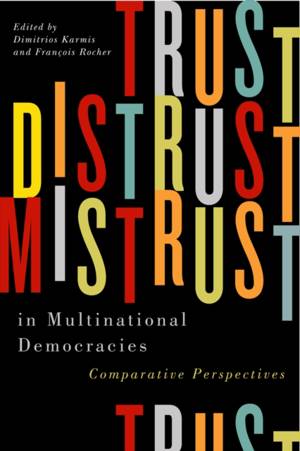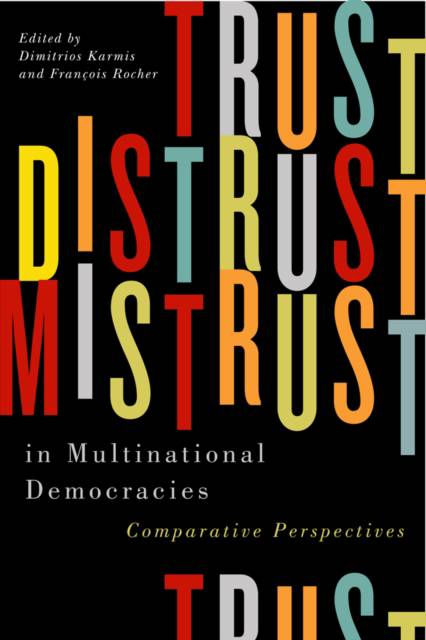
Bedankt voor het vertrouwen het afgelopen jaar! Om jou te bedanken bieden we GRATIS verzending (in België) aan op alles gedurende de hele maand januari.
- Afhalen na 1 uur in een winkel met voorraad
- Gratis thuislevering in België
- Ruim aanbod met 7 miljoen producten
Bedankt voor het vertrouwen het afgelopen jaar! Om jou te bedanken bieden we GRATIS verzending (in België) aan op alles gedurende de hele maand januari.
- Afhalen na 1 uur in een winkel met voorraad
- Gratis thuislevering in België
- Ruim aanbod met 7 miljoen producten
Zoeken
Trust, Distrust, and Mistrust in Multinational Democracies
Comparative Perspectives Volume 4
€ 162,45
+ 324 punten
Omschrijving
The importance of research on the notion of trust has grown considerably in the social sciences over the last three decades. Much has been said about the decline of political trust in democracies and intense debates have occurred about the nature and complexity of the relationship between trust and democracy. Political trust is usually understood as trust in political institutions (including trust in political actors that inhabit the institutions), trust between citizens, and to a lesser extent, trust between groups. However, the literature on trust has given no special attention to the issue of trust between minority and majority nations in multinational democracies - countries that are not only multicultural but also constitutional associations containing two or more nations or peoples whose members claim to be self-governing and have the right of self-determination. This volume, part of the work of the Groupe de recherche sur les sociétés plurinationales (GRSP), is a comparative study of trust, distrust, and mistrust in multinational democracies, centring on Canada, Belgium, Spain, and the United Kingdom. Beliefs, attitudes, practices, and relations of trust, distrust, and mistrust are studied as situated, interacting, and coexisting phenomena that change over time and space. Contributors include Dario Castiglione (Exeter), Jérôme Couture (INRS-UCS), Kris Deschouwer (Vrije Universiteit Brussel), Jean Leclair (Montréal), Patti Tamara Lenard (Ottawa), Niels Morsink (Antwerp), Geneviève Nootens (Chicoutimi), Darren O'Toole (Ottawa), Alexandre Pelletier (Toronto), Réjean Pelletier (Laval), Philip Resnick (UBC), David Robichaud (Ottawa), Peter Russell (Toronto), Richard Simeon (Toronto), Dave Sinardet (Vrije Universiteit Brussel), and Jeremy Webber (Victoria).
Specificaties
Betrokkenen
- Uitgeverij:
Inhoud
- Aantal bladzijden:
- 392
- Taal:
- Engels
- Reeks:
- Reeksnummer:
- nr. 4
Eigenschappen
- Productcode (EAN):
- 9780773553422
- Verschijningsdatum:
- 13/09/2018
- Uitvoering:
- Hardcover
- Formaat:
- Genaaid
- Afmetingen:
- 152 mm x 229 mm
- Gewicht:
- 707 g

Alleen bij Standaard Boekhandel
+ 324 punten op je klantenkaart van Standaard Boekhandel
Beoordelingen
We publiceren alleen reviews die voldoen aan de voorwaarden voor reviews. Bekijk onze voorwaarden voor reviews.











